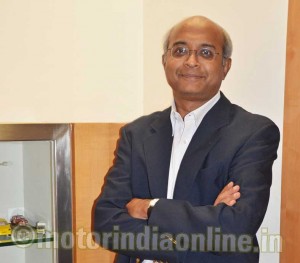
There is greater need for convergence of policy-makers, technologists and consumers in the automotive R&D sector for real-time changes in transportation and sustainable mobility. Further, the policy-makers could guide technology development. The merger of many factors of automotive technology is already getting connected with the larger fabric of society.
This was stated by Dr. V. Sumantran, Conference Chairman and Executive Vice-Chairman, Hinduja Automotive Ltd., while addressing the conference on ‘Automotive R&D Trends’ with the theme ‘R&D Challenges for Sustainable Mobility’, organised by the Tamil Nadu Technology Development and Promotion Center of the Confederation of Indian Industry (CII) in Chennai.
He said increased focus on sustainability or circular economy has been preparing the automotive industry in ways that would ensure that the future generations will have a better quality of life. Progress in this sector, especially in terms of reduction of carbon emission and higher fuel efficiency, has been staggering.
Dr. Sumantran said urbanization has been influencing the automotive R&D in a big way. “We have to deal urbanization in the context of mobility, as the automotive industry could not ignore the consequences of using cars”. A stronger system as in many other countries has to be in place, where the users would pay a fair cost for the use of the urban space. Further, urban centres have to be made more efficient for mobility by dovetailing technology and integrating multi-modal transport systems.
Mr. Nagesh Basavanhalli, President & Managing Director, Fiat Chrysler India, said shifts in innovation hub to Asia have given a greater opportunity for countries like China and India. Places like Chennai, Bangalore and Pune in India which have already gone through a services wave are having “an engineering services wave” with research facilities not only for local needs but for the whole world. To get to the next step the culture of innovation has to be driven by strategic partnerships with universities and industry consortiums.
Mr. Kenichiro Yomura, President & Managing Director, Nissan Motors India, observed that in India, Nissan, with its focus on giving “more with less”, would bring in a new range of cars developed for the local market. “This word local is very important as there is no substitute for local knowledge”. India offered a great opportunity for the global manufacturers to set up their R&D infrastructure.
Mr. Friedrich Boecking, Regional President – Diesel Systems, Bosch Ltd., India, in his address, said rapid urbanization gave a huge opportunity for the automotive industry in India. India has to work on its infrastructure not only for highways and roads but for mass transportation in megacities. There should also be policies to support business and to reduce emission levels.
He called for efficient government policies to aid exports with local technology. There should also be greater co-operation with universities and research collaboration with industry. Safety has to be an important aspect of transport planning with focus on discipline on roads and understanding safety and technology for safety. Expectation in India would be driven by low-cost ownership, fuel efficiency, safety, modern and contemporary design and hassle-free driving.
Mr. Boecking also said the future of the automotive industry would be the cloud-based fleet management and cloud-based automatic driving.